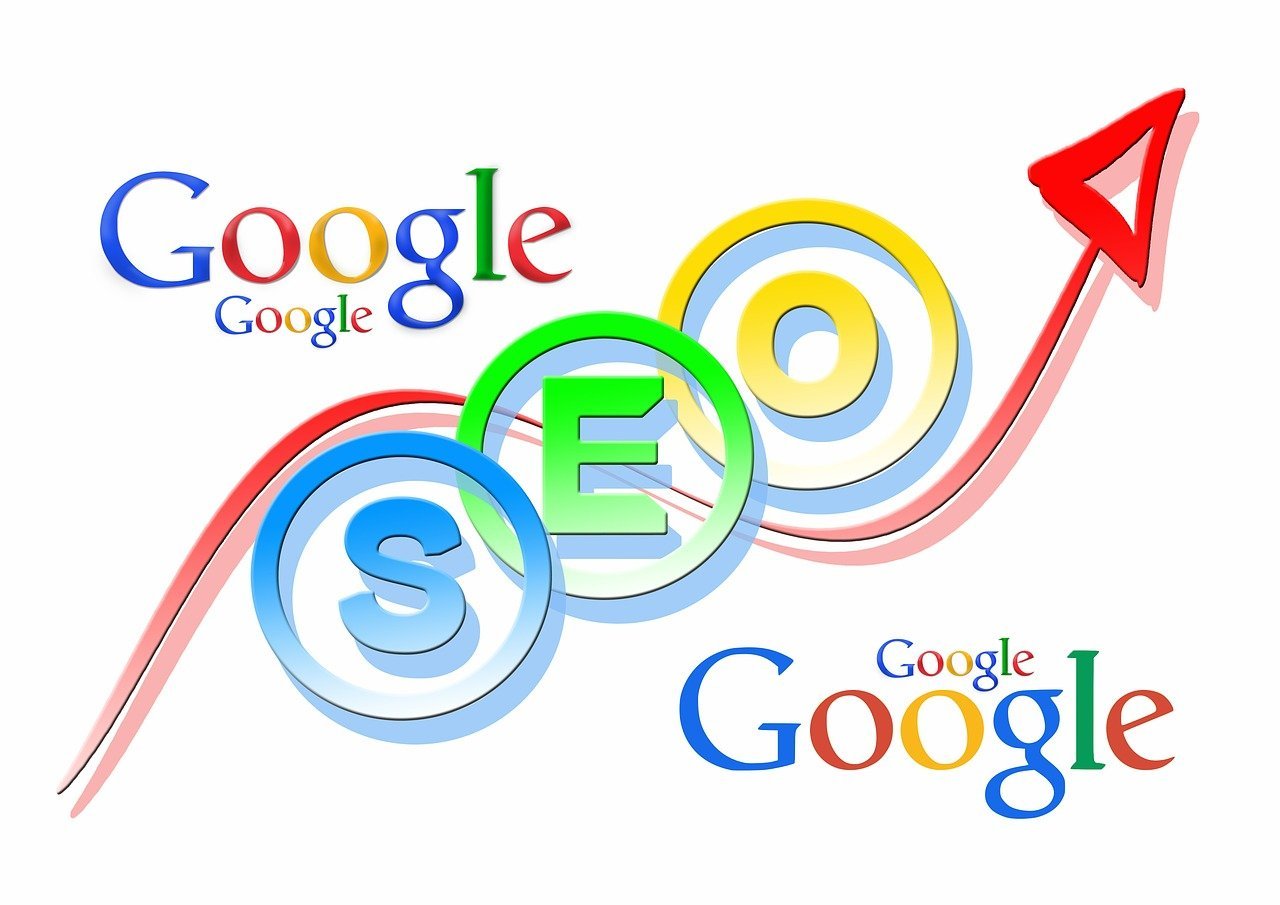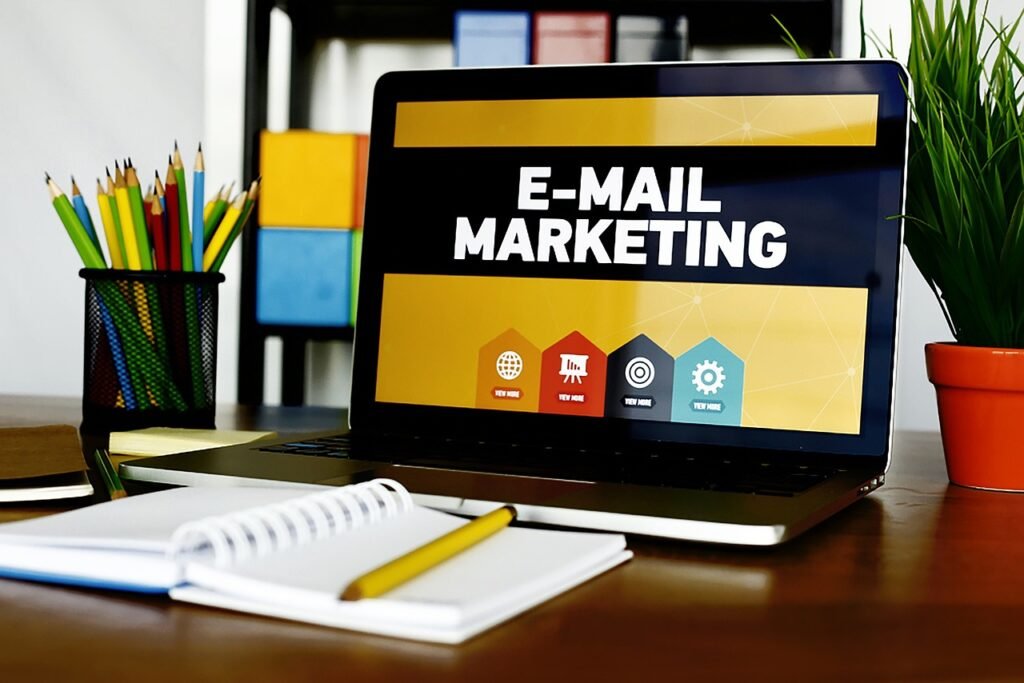SEO in Digital Marketing: Unlocking Organic Growth and Visibility
Author: Sabyasachi Moulik

In the vast landscape of digital marketing, search engine optimization (SEO) holds a significant role in driving organic growth and increasing online visibility. It is a multifaceted strategy that focuses on optimizing a website’s content, structure, and overall online presence to rank higher in search engine results pages (SERPs). In this article, we will explore the key elements of SEO in digital marketing and discuss how businesses can leverage this powerful technique to enhance their online presence and attract valuable organic traffic.
Table of Contents
- Introduction to SEO in Digital Marketing
- Understanding Search Engine Algorithms
- Keyword Research and Targeting
- On-Page Optimization Techniques
- Technical SEO for Website Performance
- Building High-Quality Backlinks
- User Experience and SEO
- Content Marketing and SEO
- Local SEO for Location-Based Businesses
- Mobile SEO for a Mobile-First World
- Monitoring and Analyzing SEO Performance
- Keeping Up with SEO Trends and Updates
- SEO Tools and Resources
- Conclusion
1. Introduction to SEO in Digital Marketing
SEO plays a pivotal role in digital marketing by improving a website’s visibility and attracting organic traffic from search engines. It involves optimizing various aspects of a website to align with search engine guidelines and user intent. Effective SEO strategies result in higher search engine rankings, increased brand visibility, and improved user engagement.
2. Understanding Search Engine Algorithms
Search engines use complex algorithms to determine the relevance and quality of websites when displaying search results. Understanding the basics of search engine algorithms, including factors such as relevance, authority, and user experience, is crucial for developing an effective SEO strategy.
3. Keyword Research and Targeting
Keyword research is the foundation of SEO. It involves identifying the terms and phrases that users search for when looking for information related to a business or industry. By targeting relevant keywords in website content, businesses can optimize their webpages to appear in relevant search queries and attract targeted organic traffic.
4. On-Page Optimization Techniques
On-page optimization focuses on optimizing individual webpages to improve their visibility and relevancy. This includes optimizing meta tags, headings, URL structure, and content optimization techniques such as incorporating keywords, optimizing images, and improving overall readability.
5. Technical SEO for Website Performance
Technical SEO involves optimizing the technical aspects of a website to improve its performance and crawlability by search engines. It includes aspects such as website speed optimization, mobile-friendliness, URL structure, XML sitemaps, and ensuring proper indexing and crawling by search engine bots.
6. Building High-Quality Backlinks
Backlinks, or incoming links from other websites, are a crucial factor in search engine rankings. Building high-quality and authoritative backlinks from reputable sources helps establish credibility and signals to search engines that a website is trustworthy and relevant. Techniques such as content outreach, guest blogging, and participating in industry forums can help acquire valuable backlinks.
7. User Experience and SEO
User experience (UX) plays a vital role in SEO. Search engines prioritize websites that provide a positive user experience, including factors such as website navigation, page load speed, mobile responsiveness, and engaging content. Optimizing UX elements not only improves SEO but also enhances user satisfaction and encourages repeat visits.
8. Content Marketing and SEO
Content marketing and SEO go hand in hand. Creating high-quality, relevant, and engaging content not only attracts organic traffic but also encourages link-building and social sharing. A well-executed content marketing strategy, combined with SEO best practices, can significantly boost a website’s visibility and authority.
9. Local SEO for Location-Based Businesses
For businesses targeting local customers, local SEO is essential. Optimizing for local search involves targeting location-specific keywords, creating Google My Business listings, managing online reviews, and ensuring consistent NAP (name, address, phone number) information across online directories. Local SEO helps businesses appear in local search results and drives foot traffic to physical locations.
10. Mobile SEO for a Mobile-First World
With the increasing use of mobile devices, mobile SEO has become crucial. Optimizing websites for mobile responsiveness, fast loading speed, and mobile-friendly design ensures a seamless user experience across devices. Mobile SEO helps businesses reach a wider audience and improves search engine rankings.
11. Monitoring and Analyzing SEO Performance
Monitoring and analyzing SEO performance is essential to gauge the effectiveness of strategies and make data-driven decisions. Metrics such as organic traffic, keyword rankings, backlink profile, and user engagement provide valuable insights into the performance of SEO efforts. Regular monitoring allows businesses to identify areas for improvement and optimize their SEO strategy accordingly.
12. Keeping Up with SEO Trends and Updates
SEO is a dynamic field that constantly evolves with algorithm updates and industry trends. Staying informed about the latest SEO trends, algorithm changes, and best practices is crucial for maintaining a competitive edge. Following reputable SEO blogs, attending industry conferences, and participating in online communities can help businesses stay up to date.
13. SEO Tools and Resources
Numerous SEO tools and resources are available to assist businesses in their optimization efforts. These tools help with keyword research, website analysis, backlink monitoring, rank tracking, and content optimization. Leveraging the right SEO tools can streamline processes and provide valuable insights for effective SEO campaigns.
14. Conclusion
SEO is a fundamental component of digital marketing that drives organic growth, enhances online visibility, and attracts valuable traffic. By implementing the key elements of SEO outlined in this article, businesses can optimize their websites to rank higher in search engine results, connect with their target audience, and achieve their marketing objectives.
FAQs (Frequently Asked Questions)
1. How long does it take to see results from SEO efforts?
SEO is a long-term strategy and the time to see results can vary based on various factors such as the competitiveness of keywords, the current state of the website, and the effectiveness of optimization efforts. Generally, it takes several months to start seeing significant improvements in search engine rankings and organic traffic.
2. Is SEO a one-time process, or does it require ongoing optimization?
SEO is an ongoing process. Search engine algorithms evolve, competition changes, and user behavior shifts over time. To maintain and improve search rankings, businesses need to regularly monitor their SEO performance, analyze data, adapt strategies, and stay up to date with the latest trends and best practices.
3. Can small businesses benefit from SEO?
Yes, small businesses can greatly benefit from SEO. In fact, SEO provides an opportunity for small businesses to compete with larger competitors by targeting niche keywords, local markets, and leveraging their unique value propositions. A well-executed SEO strategy can help small businesses increase visibility, attract targeted traffic, and drive business growth.
Articles
-
 The Old Money Trend: Timeless Elegance Reimagined
The Old Money Trend: Timeless Elegance Reimagined -
 Brand Manager - The Importance of the Role and Why So Many Companies Are Not Getting It Right
Brand Manager - The Importance of the Role and Why So Many Companies Are Not Getting It Right -
 Branding: Building a Lasting Impression
Branding: Building a Lasting Impression -
 Brand Equity: Building Long-Term Value
Brand Equity: Building Long-Term Value -
 Brand Management: Nurturing and Sustaining Brand Success
Brand Management: Nurturing and Sustaining Brand Success -
 Digital Marketing Strategy: Driving Success in the Digital Age
Digital Marketing Strategy: Driving Success in the Digital Age -
 Email Marketing: Driving Engagement and Conversions
Email Marketing: Driving Engagement and Conversions -
 SEO in Digital Marketing: Unlocking Organic Growth and Visibility
SEO in Digital Marketing: Unlocking Organic Growth and Visibility -
 Personal Branding: Unleashing the Power Within
Personal Branding: Unleashing the Power Within -
 Brand Strategy: Building a Strong Foundation for Success
Brand Strategy: Building a Strong Foundation for Success -
 Brand Positioning: Creating a Strong Market Presence
Brand Positioning: Creating a Strong Market Presence
Services Offered:
1. Comprehensive Brand Strategy
2. SEO, SEM & Content Strategy
3. Email Marketing
Meet Him:
I am the founder of a digital artisanal brand called The Connoisseur. Our brand aims to seamlessly connect individuals through technology and design, facilitating the exchange of exquisite art and art-inspired objects. Through our platform, we not only support the creative community but also educate our audience through engaging editorial content on topics spanning decor, fashion, art, and lifestyle.
With a master’s degree in Engineering with Management from King’s College London, and extensive experience in the startup ecosystem locally and globally, I bring a wealth of knowledge to the table. Whether you require guidance in brand strategy, Ecommerce, Luxury, Digital Marketing, or User Experience design (UX), I am here to offer valuable insights. Don’t hesitate to schedule a consultation today and let’s discuss how I can assist you.

Entrepreneur & Brand Consultant
If you found the article informative then please do share it with your network
Contact form
SM
Navigation
Get in touch
New Delhi
Email: contact@sabyasachi.world












